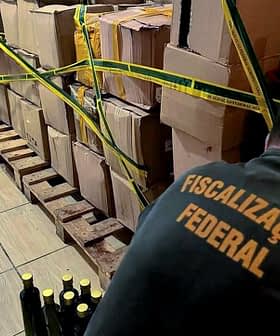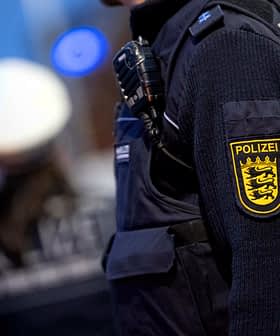Nuclear Technology Powers Portable Weapons to Fight Food Fraud
Hand-held devices have shown potential as fast and effective weapons in the battle to wipe out food fraud.
A new joint venture by the International Atomic Energy Agency (IAEA) and the Food and Agriculture Organization of the United Nations (FAO), has been launched to test nuclear-based technology and low-cost portable tools in food screening. The hand-held devices have shown potential as fast and effective weapons in the battle to wipe out food fraud.
We are always waiting for the next big scandal to happen. We need to have easy-to-use methods in place.
The project was launched to develop effective, portable, point-of-use tools that would provide increased protection against adulterated and fake products. The tools and technology will be used for authenticity testing, setting operating procedures, producing guidelines for analyses and to compile a database of authentic reference samples; a vital aid for reliably assessing a food’s origin and its composition.
“The goal is to make available low-cost devices and methods for food authorities to use directly in the streets and markets, particularly in developing countries.” Simon Kelly, the project leader and food safety specialist at the Joint FAO/IAEA Division of Nuclear Techniques in Food and Agriculture, said in a press release.
Advances in field-deployable analytical equipment have created opportunities for nuclear-based technology similar to that used by authorities to detect explosives and illegal drugs to be utilized as new weapons against food fraud.One of the technologies marked for testing is Ion mobility spectrometry.
Iain Darby, head of the IAEA’s Nuclear Science and Instrumentation Laboratory told the UN News Centre, “The development of high-performance hand-held computing devices, such as smartphones, has enabled a new generation of instruments that can be used outside the traditional laboratory environment.”
Whilst professional research labs have been effective in detecting various types of food fraud and contamination relatively quickly, the nature of these labs restricts portability. Many developing countries simply do not have adequate capacity; the IAEA/ FAO venture could provide a solution to this gap.
The project is aimed at scientifically testing food authenticity rather than relying on easily forged labels and paperwork. Jose Almirall, director of the International Forensic Research Institute at Florida International University, said in the press release, “Labels and paperwork are what countries often depend on, and these can be forged.” Almirall added, “We need to rely on science to provide assurances.”
Food fraud has been estimated to cost the global food industry over $10 billion annually. In a recent joint operation INTERPOL and Europol, seized €230 million of counterfeit and substandard food and beverages ranging from fake olive oil to adulterated alcoholic beverages.
“We are always waiting for the next big scandal to happen, and hope that it will not have an impact on health,” said Kelly. “Authorities often find themselves under public pressure, while not being adequately equipped with screening technology that can stand up to the challenge of uncovering food fraud. We need to have easy-to-use methods in place.”
Scientists from 13 countries; Austria, Belgium, China, India, Malaysia, Morocco, Russian Federation, Singapore, Sri Lanka, Sweden, United Kingdom, Uganda and the United States have signed up to take part in the initiative, which was launched in Vienna last month. Germany contributed by funding two portable spectrometer machines.
The first results are expected to be reported within two years.








